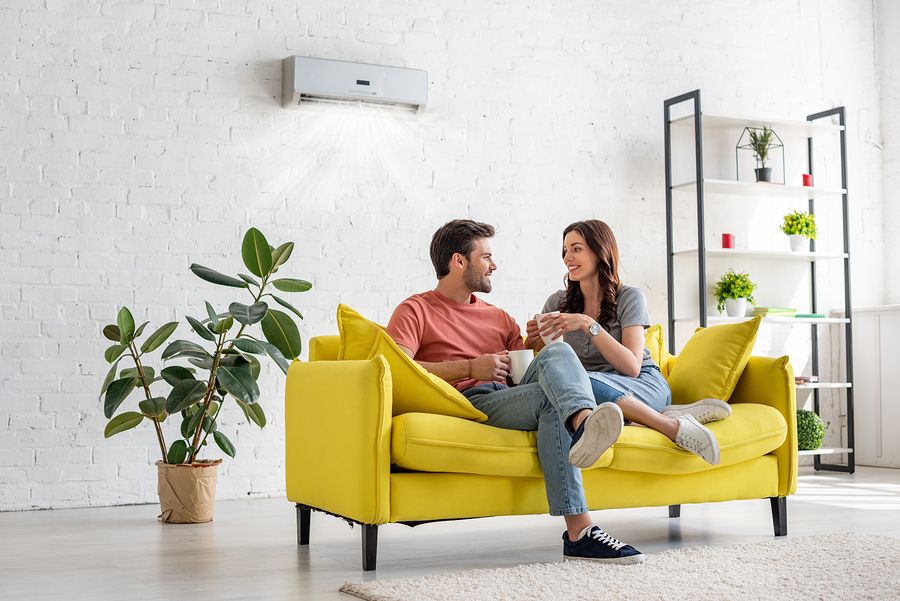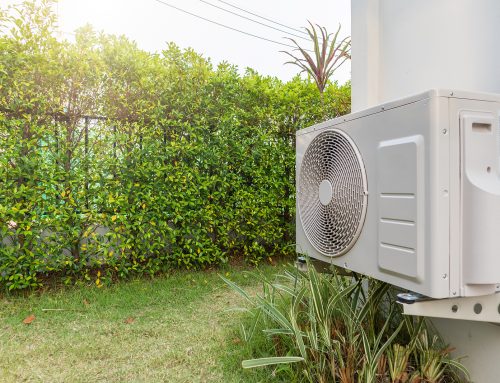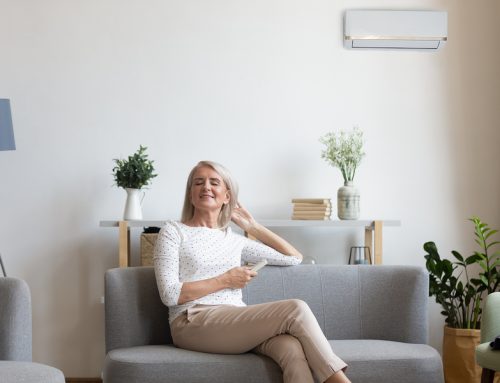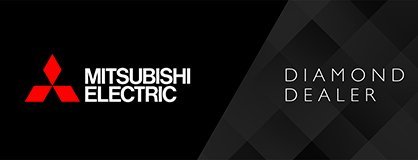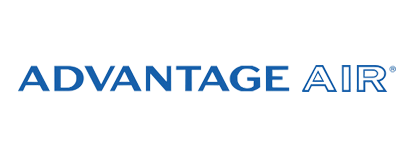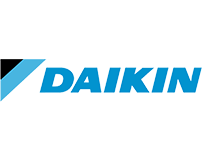We in the air conditioning world have our own version of the Apple vs. Android debate: the great evaporative vs reverse cycle cooling debate.
These two are often assumed to use the same technology – in truth, however, they’re completely different!
Whether you’re looking at a small split-system for a single room or ducted cooling for your office, it’s important that you do your research to ensure you get a system best suited for your needs as well as your building or property.
When it comes to air conditioning in Brisbane, you need an expert’s help to ensure your decision keeps you comfortable year round!
What’s the difference?
Before we talk about the main difference between reverse-cycle and evaporative cooling, let’s quickly recap the principles that power all air conditioners.
Essentially, each air conditioning unit (be it a split-system or ducted) contains an indoor and an outdoor unit.
The indoor unit delivers cool air, while the outdoor one does all the heavy lifting, turning warm air into cool air.
That’s where the similarities end – reverse-cycle and evaporative air conditioners use completely different principles to achieve cooling.
How does reverse-cycle air conditioning work?
The way reverse-cycle air conditioning works is by cycling warm air from inside the house and running that through the outdoor condenser.
Reverse-cycle air conditioners pump air through a refrigerant.
This creates a cooling effect thanks to the tendency of liquid to absorb heat when it transforms from a liquid state into a gas or vapour.
It’s thanks to this quirk in the laws of physics that your reverse cycle air conditioner works.
What a reverse-cycle air conditioner will do is cycle air from inside your house, essentially locking cool air in and treating it over and over, creating a feedback loop of cooling.
The air gets cooler and cooler the more times it’s cycled – think of it a bit like a refrigerator.
How does evaporative air conditioning work?
By contrast, evaporative air conditioning works on a slightly different principle.
Instead of running warm air through a refrigerant and cooling it that way, evaporative cooling operates by evaporating water.
Specifically, evaporative coolers draw in fresh, warm and humid air from outside through the outdoor unit. The warm air is then filtered through wet pads or quilts, which causes evaporation.
Just like reverse-cycle cooling, the resulting evaporation serves to cool the air. The resulting cool air is then blown into your house with a fan.
Unlike reverse-cycle cooling however, evaporative air conditioning leaves the air more humid than before.
And since evaporative cooling uses air from outside, you’ll need to open a door or window to allow air to be pushed out, and to make room for a new batch of cooled air.
Pros and cons of reverse-cycle and evaporative cooling: which one’s better?
Both types of air conditioner offer Brisbanians a range of unique benefits, as well as challenges.
If you’re thinking of air conditioning installation in Brisbane, you’ll want to pay close attention!
Humidity
One of the biggest differences between reverse-cycle and evaporative cooling is the amount of humidity you’re left with.
Like we mentioned above, evaporative cooling creates air that’s more humid. On the one hand, this can help avoid some of the issues that come with dry air.
That’s because dry air carries bacteria and germs, so it’s no wonder that many with asthma or respiratory conditions prefer evaporative cooling over reverse-cycle air conditioning.
On the other hand, this can also limit its effectiveness during certain weather conditions. If the air is already humid, your evaporative cooler’s effectiveness will be limited.
Air conditioning in Brisbane needs to be chosen with an eye towards location, too – areas such as Manly are more humid in general, affecting the power of evaporative cooling.
Additionally, there’s also a slight risk that the added humidity that comes with evaporative cooling may facilitate mould growth.
Verdict: depends on your requirements
Versatility
Reverse-cycle air conditioning comes with one benefit in particular that no evaporative air conditioner can hope to provide: namely, reverse-cycle air conditioners can also double as heaters!
It doesn’t even require that much work, either – essentially, all your reverse-cycle air conditioner does is reverse the process.
Of course, not all homeowners need this function.
Say your home already has central heating – in this case, there’s really no point to getting an air conditioner that can double as a heater.
Verdict: reverse-cycle (in most cases)
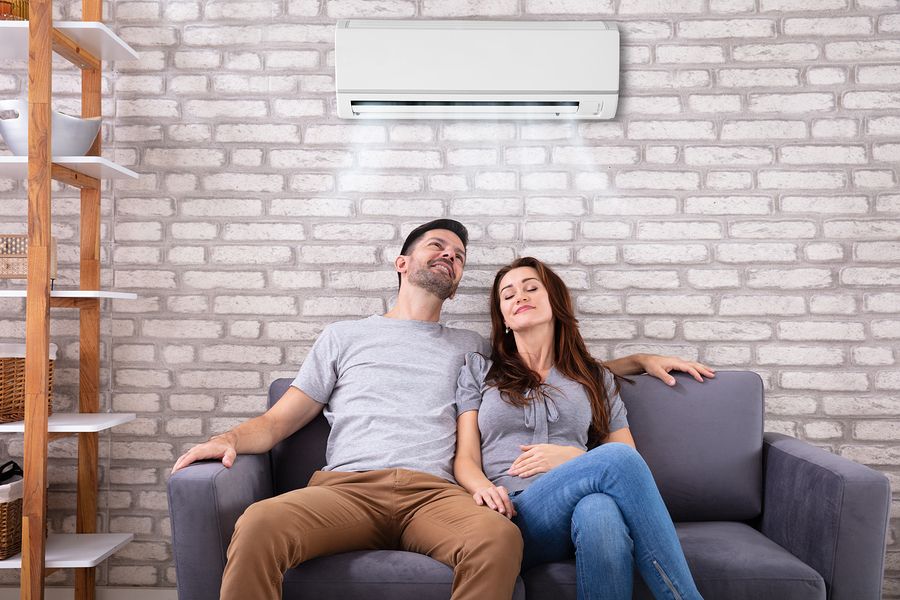
Cooling power
When it comes to cooling power, there’s really no competition – reverse-cycle air conditioning wins every time, hands-down.
As we mentioned above, evaporative cooling can be affected by local weather conditions.
While great for combating dry heat, as any Brisbanite knows, our summers tend to be hot and humid – problem if you’ve chosen an evaporative system for your air conditioning installation in Brisbane!
What’s more, evaporative cooling also tends to struggle at cooling down large rooms.
By contrast, reverse-cycle air conditioning is much quicker to cool your house down. In our experience, modern reverse-cycle air conditioners are streets ahead in efficiency – you’ll feel a difference within minutes, while evaporative systems tend to take considerably longer.
Unlike evaporative, reverse cycle doesn’t need an open door or window, which means you don’t need to worry about heat bleeding in from outdoors, either.
Verdict: reverse-cycle
Air quality
One of the myths that surround this debate is the idea that evaporative air conditioners provide cleaner, fresher air.
People assume that because evaporative systems draw air from outside and shunt stale air outside that evaporative systems are the winners when it comes to air cleanliness. They assume that since reverse-cycle conditions the same air over and over again that it’s full of microbes, bacteria or worse.
The truth is however that there’s no difference!
Both systems use extensive filtering to clean and purify the air in your home. In our experience, the difference in air quality is marginal at the most.
Verdict: no difference
Efficiency: is reverse cycle cooling economical?
Reverse cycle air conditioning is an economical option for cooling or heating your home throughout the year.
Not only does it offer energy efficient climate control options, but its cost-effective pricing helps you to save on utility costs in the long run.
Whether you’re looking to quickly cool off a space or keep the temperature consistent for your comfort, reverse cycle air conditioning is a brilliant choice. It can also help to provide relief from seasonal allergies due to its filters and dehumidifying capabilities.
Investing in a reverse cycle air conditioner can pay itself off over time as you enjoy a comfortable home environment without breaking the bank.
Is evaporative cooling as good as air conditioning?
Reverse cycle air conditioning provides superior cooling and heating performance compared to traditional evaporative cooling systems.
The ability to efficiently switch between cooling and heating in one easy step makes reverse cycle air conditioning the most convenient option when it comes to temperature control in your home. With an inverter system, you can also enjoy precise temperature control with maximum energy efficiency, resulting in lower electricity bills.
When you’re trying to stay cool during Brisbane’s year-round mild (and humid) temperatures, reverse cycle air conditioning is a great choice for your home.
However, either can be a good solution in your home. Both these types of air conditioning have their own unique strengths and weaknesses. As such, there’s only one that’s better for you.
You’ll need to look at your unique requirements when deciding which system to choose – this is an important part of our overall air conditioner service in Brisbane, known as system design.
In particular, you’ll want to think about…
- The area you want cooled – generally, reverse-cycle air conditioners are more effective at cooling large spaces
- Location – air conditioning in Brisbane needs to consider humidity levels in the surrounding area
- Budget – we’ll help you choose a system that doesn’t break the bank
- Your home or business – orientation, windows, insulation… all of these influence how hot your property gets
These are just some of the factors that affect system design (and therefore change which type of air conditioner is best for your needs). It’s a process that requires a lot of thought, as well as assistance from a professional!
Call Tri-Tech for air conditioning in Brisbane
Need help choosing the perfect air conditioner for your home or business? Tri the best – call Tri-Tech!
Combined with 30 years worth of experience, and there’s really no better team to call for air conditioning in Brisbane!
We work with premium brands including Mitsubishi Electric and Daikin.
We offer a range of services and solutions, including air conditioning repairs, helping you to keep your cool and stay comfortable during Brisbane’s warm and humid temperatures.
Don’t sweat it – Tri-Tech it! Call our team today on (07) 3394 0222 or click here to get a free quote.

